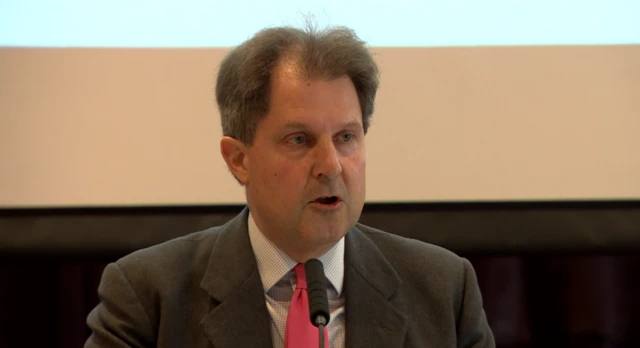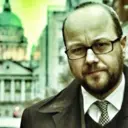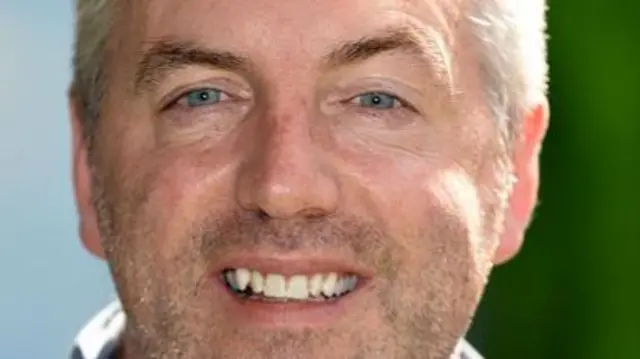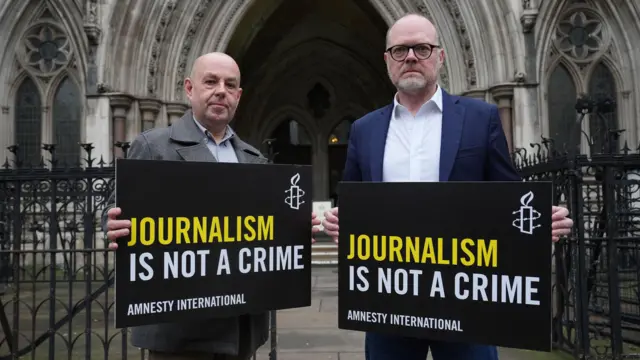Surveillance raised concerns 'fundamental to democracy' - report authorpublished at 11:57 BST 24 September

Mr McCullough KC is addressing the public and media in a press conference
The author of the report Angus McCullough KC introduces his report by making reference to the arrests of journalists Trevor Birney and Barry McCaffrey in 2018.
He says "their houses were searched, as were the offices of the production company with which they were involved".
Mr McCullough says police also undertook a surveillance operation of the person they believed was the source of leaks to the journalists.
"Two journalists who had been investigating mass murder and allegations of state collusion had been arrested and subject to covert measures and surveillance of a suspected source", the barrister said.
He explains this raised concerns about the "chilling effect that this could have on investigative journalism in Northern Ireland".
He added: "The right of freedom of expression - including the freedom for journalists and civil society to examine the actions of the state - is fundamental to democracy."



